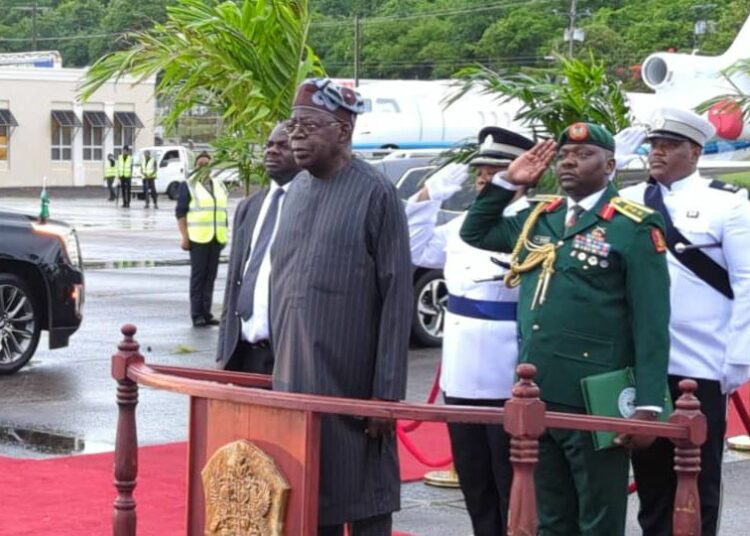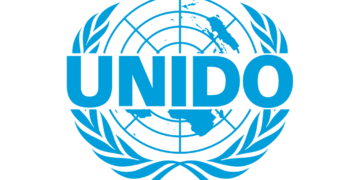The Presidency has clarified the purpose of President Bola Tinubu’s historic state visit to Saint Lucia, describing it as a strategic diplomatic engagement aimed at strengthening ancestral, economic, cultural, and diaspora ties between Nigeria and the Caribbean nation.
In a statement issued on Sunday by Special Adviser to the President on Information and Strategy, Bayo Onanuga, the Presidency dismissed what it called “misguided, mischievous, and uninformed” commentary surrounding the visit, emphasising that the trip aligned with Nigeria’s foreign policy framework and broader objectives of South-South cooperation.
“From the perspective of the Government of Saint Lucia, the visit by the Nigerian leader paves the way for the rekindling of our ancestral bonds, igniting a new era of diplomatic, cultural, and economic possibilities between our nations,” the statement read.
President Tinubu’s visit comes as Saint Lucia — the headquarters of the Organisation of Eastern Caribbean States (OECS) and a key gateway to the 15-member CARICOM bloc — seeks to deepen connections with Africa. The CARICOM region commands a combined GDP of over $130 billion, offering new frontiers for trade, development cooperation, and cultural exchange.
Onanuga noted that many Saint Lucians trace their ancestry to Nigeria, with waves of migrants arriving in the Caribbean from present-day Nigeria during the 19th century. He said President Tinubu’s visit resonates deeply with the Saint Lucian people and marks the beginning of renewed ties rooted in shared history and heritage.
The visit also honours notable historical figures who embody the Nigeria-Saint Lucia connection, including the late Sir Darnley Alexander, a Saint Lucian-born jurist who served as Chief Justice of Nigeria from 1975 to 1979. His son, Michael Alexander, served as a frontline doctor in the Nigerian Army during the civil war.
Culturally, Nigeria’s global influence is already present in the region. The night before Tinubu’s arrival, Nigerian Afrobeats music dominated the popular Gros Islet Street Party in Saint Lucia — a testament to the country’s growing soft power in the Caribbean.
Onanuga said the visit aligns with Nigeria’s “Four D’s” foreign policy agenda — Democracy, Development, Diaspora, and Demography — and supports the African Union’s Sixth Region initiative, which recognises the African diaspora as a vital development partner.
Saint Lucia’s vibrant democracy and Nigeria’s 26-year record of uninterrupted democratic governance provide a solid foundation for enhanced bilateral cooperation. During his stay, President Tinubu is scheduled to address a special joint session of Saint Lucia’s bi-cameral Parliament at the Sandals Grande Conference Hall, a venue famously named after former U.S. President Bill Clinton.
The President is also expected to visit the Sir Arthur Lewis Community College, reflecting Nigeria’s commitment to educational and knowledge exchange. Members of Nigeria’s Technical Aid Corps (TAC) — a scheme that deploys Nigerian professionals to countries in Africa, the Caribbean, and the Pacific — are part of the delegation.
Additionally, President Tinubu will engage with the Nigerian community in Saint Lucia at a reception hosted by the Prime Minister, creating an opportunity to discuss shared challenges and strengthen people-to-people diplomacy.
Describing the visit as rare and historic, Onanuga noted that Saint Lucia has hosted fewer than 10 official state visits since its independence in 1979. The last visit by an African Head of State was by Nelson Mandela in 1998. President Tinubu’s 2025 visit — 27 years later — marks a significant milestone in Nigeria’s international relations and a revival of the Afro-Caribbean connection.




